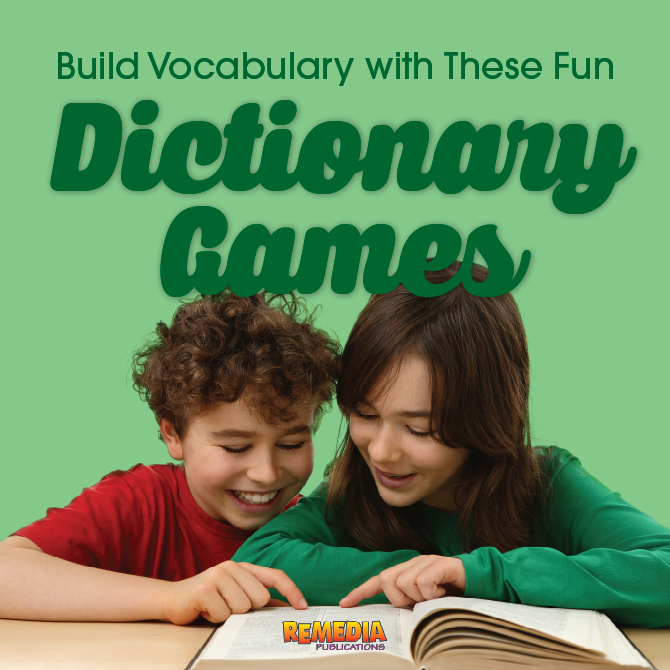Build students’ dictionary skills and you’ll watch their vocabulary, reading skills, and independence grow! Each week, before you hand out your spelling list, introduce students to the words with these fun dictionary activities.
Do your students need a refresher on how to use the dictionary? Brush-up with this worksheet <free download> from our Dictionary Skills books.
Word Races
Split the class into teams and give each team a dictionary (have each student take turns using the dictionary within the team). If you have a classroom iPad, give each team a turn using the iPad’s Dictionary app. Say a word out loud. Do not spell the word or use it in a sentence. On your “Go” students must look for the word in the dictionary. As soon as they find the word, they should raise their hand. Let the entire class find the word, but take note of who found it first. Have the winning team spell the word and read the definition in the dictionary. If they found the correct word, that team gets a point. If not, go to the next team to see if they found the correct word. Do this until you get through your entire spelling list, or each team player has had a chance to use the dictionary at least once.
Mystery Word
Put students in pairs, each with a dictionary. You will give students a series of clues to help them find the mystery word. As the students hear the clues they will look for the word in the dictionary. Example: The definition of the word is “to keep on or persist”. This word begins with the third letter of the alphabet. This word has two syllables. The last letter is an “e”… The word is “continue”.
Fictionary
You can play this game throughout the week or at the beginning as an introduction to the words on your list. Assign each student a word to look up in the dictionary. Have each student first write the real definition and then write two fake definitions. Collect everyone’s definitions. To prepare, choose the words you’re going to read ahead of time and label the definitions A, B, or C (mix it up so that students won’t catch on to the pattern). To play, you will say the word out loud and read all three definitions that the student wrote down. Students then guess which definition is the real definition by writing their guess on a piece of paper. After everyone has written his or her guess down (A, B, or C), read the correct definition again and ask for a show of hands as to who guessed the correct definition. These students get a point. The student with the most points at the end wins.
Want More?
We have even more tips for how to help improve your students‘ vocabulary here.









